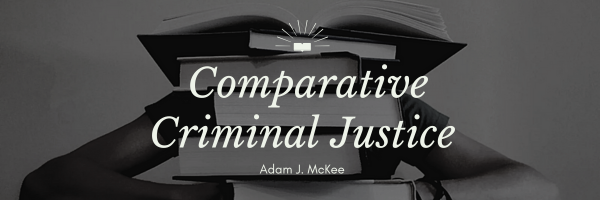In an increasingly interconnected world, understanding the nuances of criminal justice systems beyond our borders has become more important than ever. For American students of criminal justice, delving into comparative studies offers invaluable insights that extend beyond academic curiosity—it equips future professionals with a broader perspective necessary to address complex legal challenges in a global context. This chapter serves as a gateway to exploring the rich tapestry of criminal justice systems worldwide, starting with a comprehensive overview of the American system as a foundational reference point.
Reading Time: 4 minutes
The American criminal justice system is a complex mosaic of federal and state laws, agencies, and institutions, each playing a pivotal role in maintaining social order and delivering justice. By examining its key components—law enforcement, courts, and corrections—we lay the groundwork for meaningful comparisons with other nations. Understanding how crimes are defined, prosecuted, and punished within the U.S. provides a baseline from which to appreciate the diversity and commonalities found in other legal systems.
Major aspects of criminal justice, such as the codification of laws, the roles of police and judicial bodies, and correctional philosophies, are essential themes that resonate across different jurisdictions. This chapter will delve into how these elements manifest within the American context, highlighting both the strengths and challenges inherent in our system. By doing so, we set the stage for a deeper exploration of how other countries address similar issues, often shaped by their unique historical, cultural, and societal influences.
Legal traditions around the world vary widely, encompassing common law, civil law, Islamic law, customary law, and mixed systems. Each tradition offers distinct approaches to justice, reflecting the values and principles of the societies they govern. For instance, the adversarial nature of the common law system contrasts with the inquisitorial processes found in civil law countries. By introducing these legal frameworks, we begin to appreciate the diversity of thought and practice that characterizes global criminal justice.
Methodologies for comparative analysis are crucial for meaningful cross-cultural understanding. This chapter will introduce the tools and approaches used to study different legal systems systematically. We will discuss the importance of context in comparative studies, acknowledging that laws and practices cannot be fully understood in isolation from the cultural, economic, and political environments in which they operate. Challenges such as language barriers, differing legal terminologies, and varying data availability will also be addressed, emphasizing the need for critical thinking and adaptability in comparative research.
In essence, this chapter aims to build a solid foundation for the comparative journey ahead. By grounding ourselves in the American criminal justice system and understanding the fundamental aspects that define criminal justice globally, we prepare to explore and critically analyze the systems of other nations. This exploration is not merely academic; it equips us with the knowledge and perspective to engage with international legal issues effectively, promotes cross-cultural understanding, and fosters a more holistic approach to justice.
As we progress through this book, each subsequent chapter will delve into the criminal justice system of a different country, examined through a consistent framework to facilitate comparison. We will explore nations representing various legal traditions, including common law, civil law, and Islamic law systems. Through this structured analysis, we aim to highlight both the universal challenges faced by all justice systems and the unique solutions crafted within different cultural contexts.
Embarking on this comparative study enhances our appreciation of the diversity and complexity of global criminal justice. It challenges us to think critically about our own system, recognize areas for improvement, and consider innovative practices from around the world. Ultimately, this knowledge empowers us to contribute to the evolution of a more just and effective criminal justice system both at home and abroad.
Modification History File Created: 01/22/2025 Last Modified: 01/26/2025
You are welcome to print a copy of pages from this Open Educational Resource (OER) book for your personal use. Please note that mass distribution, commercial use, or the creation of altered versions of the content for distribution are strictly prohibited. This permission is intended to support your individual learning needs while maintaining the integrity of the material.
This work is licensed under an Open Educational Resource-Quality Master Source (OER-QMS) License.

